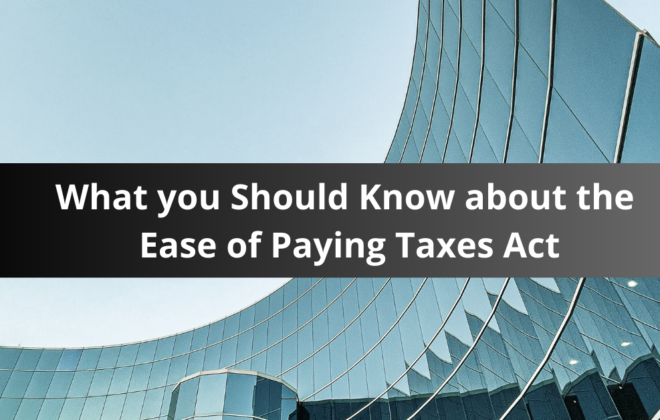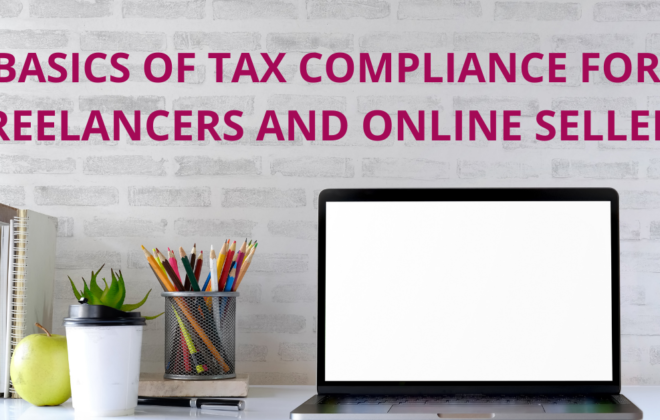The Definitive Guide to Starting an Online Business in the Philippines
The virtual world has enabled people to experience a lot of things different from the real world. The internet, since its creation, has long been altering the way we live. It contributed to the speedy transactions of business owners and their consumers.
Digitalization and online payment methods provided ease and convenience to busy individuals who cannot find ample time to do their purchase in physical establishments. With a wide range of delivery services, products reach the doorsteps of offices and homes and fulfill the customers’ needs.
This innovation paved the way for the rise of a digital economy. Transition of traditional businesses to online has been rampant and this set a new standard for consumerism.
If you are one of those who want to join the online business community, here are some guidelines on how you can begin:
Target Market
Know your specified market. This can be determined by age bracket, status, gender, occupation, average income, hobbies, interests, and skills among others.
Identify Your Product or Services
What are you good at doing? Is there some hobby that you are passionate about that can generate saleable products? Develop something from your activities and interests. You may then improve your products and do tweaks before proceeding to other categories. It is important to keep focus on what is your priority or what primary items you will sell to master how to upscale its quality.
Determine If Your Idea Has a Market
Test your products or services first. That’s the golden rule. You can start by selling and offering it to your family or friends first and ask for their honest feedback. In that way, you’ll have an initial grasp about your target niche to see if your products or services are really viable.
Once you have enough feedback and are happy how it turns out, pivot from there. You can also try running a paid advertisement campaign using major social media like Facebook or Instagram, solely targeting your local prospect consumers and see if there are more angles for growth or feedback you haven’t heard while doing the testing with your closest friends and relatives.
Business registration
Be particular with the legalities of your business. Have it registered.
A registration makes the business more qualified, legitimate, and official to operate.
Guidelines in Business Registration in the Philippines
Step 1. Know what your business entity is, whether it is a sole proprietorship, partnership, or corporation. Register it with the appropriate government agency.
- Sole proprietorship – a form of business involving one and only one owner.
- Partnership – involving two or more owners.
- Corporation – a separate legal entity owned by its shareholders, managed by a board of directors, and operated by its officers.
- Cooperative – a group of people united voluntarily to meet their same economic, social, and cultural needs and aspirations through a jointly-owned enterprise
If you are building a business as a sole proprietorship you need to register your business name in the Department of Trade and Industry (DTI) you can visit http://bnrs.dti.gov.ph/ to register and get a business name certificate (Your DTI registration will be valid for 5 years).
For partnership and corporation you have to go with the Securities and Exchange Commission (SEC) you can visit the site at http://www.sec.gov.ph/ to learn more or visit http://iregister.sec.gov.ph/MainServlet for online registration please take note that your SEC registration will be valid for 50 years.
For Cooperative, you need to communicate with the Cooperative Development Authority (CDA). You can visit their website at https://www.cda.gov.ph/.
Registering with the Department of Trade and Industry (DTI)
You need to comply with the following requirements:
- Presentation of 1 copy of government issued ID
- Accomplished Business Name Registration form (BTRCP Form 16) in duplicate
- Registration fee depending on territorial coverage of the business name and documentary stamp: P200 for barangay, P500 for municipal, P1000 for regional, and P2000 for national coverage.
Registering with the Securities and Exchange Commission (SEC)
Requirements for partnerships are the following:
- Name Verification Slip (online or at the Name Verification Unit)
- Articles of Partnership
- Written Undertaking to Change Corporate Name by any partner
- Form F1505 for partnership with Foreign Equity
- Proof of Inward Remittance by foreign partners
Requirements for Stock (S) and Non-Stock (NS) Corporations:
- Verification Slip Form (S) (NS)
- Articles of Incorporation and By-Laws (S) (NS)
- Treasurer’s Affidavit (S)
- Notarized Bank Certificate of Deposit where the bank is located (S)
- Written Undertaking to Change Corporate Name by any Incorporator or Director (S), by any Trustee (NS)
- Clearance from other government agencies (S)
- Foreign Investment Application Form F-100 (for subsidiaries of foreign corporations (S))
- Proof of Inward Remittance by Non-Resident Aliens/Subscribers (S)
- List of members and amount contributed certified by the Secretary and Treasurer (NS)
- Registration fee of P360
Step 2. Apply for business permit and license from the City or Municipality where your business is to be located.
Along with this, you also have to get sector specific clearances if your business belongs to certain categories, for example:
- Travel agencies needs clearance from the Department of Tourism (DOT)
- Food and cosmetics business has to acquire clearance from the Food and Drugs Administration (FDA)
- Pawn shops has to apply for clearance from the Bangko Sentral ng Pilipinas (BSP)
- Learning centers need Department of Education (DepEd) clearance
- Wood crafts or furniture enterprises with the Department of Environment and Natural Resources (DENR).
Registering with the City or Municipality
You get your Mayor’s Permit at the Municipality or City where your business is located. This permit will be valid for a year.
Requirements may include the following:
- DTI or SEC Registration Certificate or Articles of Incorporation
- Community Tax Certificate
- Barangay Clearance
- Location Clearance
- Certificate of Occupancy
- Building Permit
- Fire Safety or Inspection Permit
- Electrical Inspection Certificate
- Contract of Lease
- Picture or Sketch of the Site
- Public Liability Insurance (for restaurants, mall, cinemas)
- SSS Registration
Please remember, that some of these requirements may not apply to you, so make sure to ask the right questions at the City or Municipal Office to know the next step and requirements for your new business venture.
Step 3. Register with the Bureau of Internal Revenue (BIR) District Office where your business is to be located.
Note: You have to finish Steps 1 and 2 first before proceeding to the BIR.
At the BIR, you get your Tax Identification Number (TIN), Authority to Print Invoice and Book of Journal. You may register at the BIR Provincial Office where your business is located or go to the BIR Revenue District Office. Your BIR Registration will be valid for 1 year.
Requirements for TIN Application for Employers
For Self Employed/Mixed Income Individual (BIR Form 1901):
- Birth Certificate or any valid ID showing name, address and birth date
- Mayor’s Permit or application for Mayor’s Permit
- DTI Certificate of Registration of Business Name
- For Partnerships and Corporations (BIR Form 1903):
- SEC Certificate of Registration
- License to do business in the Philippines (in case of resident foreign corporation)
- Mayor’s Permit or Application for Mayor’s Permit
Application for Authority to Print Receipts and Invoices
For New Taxpayers (BIR Form 1906):
- Job Order
- Final and Clear Sample of Receipts and Invoices (machine printed)
- Photocopy of BIR Form 1901 or 1903, TIN Card, Proof of Payment (BIR Form 0605)
For Registered Taxpayers (BIR Form 1906):
- Job Order
- Final and clear sample of receipts and invoices
- Photocopy of Proof of Payment (BIR Form 0605, previously approved Authority to Print Invoice (ATP), Certificate of Registration (COR) BIR Form 2303, last booklet printed
Step 4. Register your business with the following offices for compliance to good employer-employee relationships, incentives and benefits, and social, community, and environmental responsibilities: Social Security System (SSS), Department of Labor and Employment (DOLE), PhilHealth, and PAG-IBIG.
Conclusion
The technology changes so fast that one year online equals about five years in the real world. But the guidelines of how to start a business have not changed at all. If you are just starting a small business online, stick to this sequence. If you have been online awhile, do a quick review and see if there’s a step you’re neglecting, or never got around to doing in the first place. You cannot go wrong with the basics.
If you are clueless and still stuck, an accounting services firm can help in this process. Take for instance a highly recommended service from DJKA Business Services Inc. that has a team of flexible, strategic, and professional individuals that will help you with your business registration in the Philippines. We value transparency and reduce the stress and hassle of registering your business.
DJKA Business Services Inc. can also help renew your permits and licenses every year. Forethought is its priority and this allows the company to reach the target deadlines given by agencies and local government units, for example, the Bureau of Internal Revenue. To avoid penalties, a sense of urgency is imbibed in each team member. They make sure that their client’s right to operate is not compromised.
Outsourcing such functions to DJKA Business Services Inc. makes you allot more time for other important things. DJKA team brings you integrity, proficiency, flexibility, and cost efficiency to the table. Contact DJKA today to learn more on how it can help your business grow.
Related Posts
Recent Posts
- New Features and Functionalities of the Online Registration and Update System (ORUS)
- A Comprehensive Guide to Taxation for Freelancers in the Philippines
- New Tax Laws in 2024: What Changes Filipino Taxpayers Should Prepare For
- How to Avoid Common Tax Mistakes in 2024
- Tax Deductions and Benefits Often Overlooked by Filipino Taxpayers





